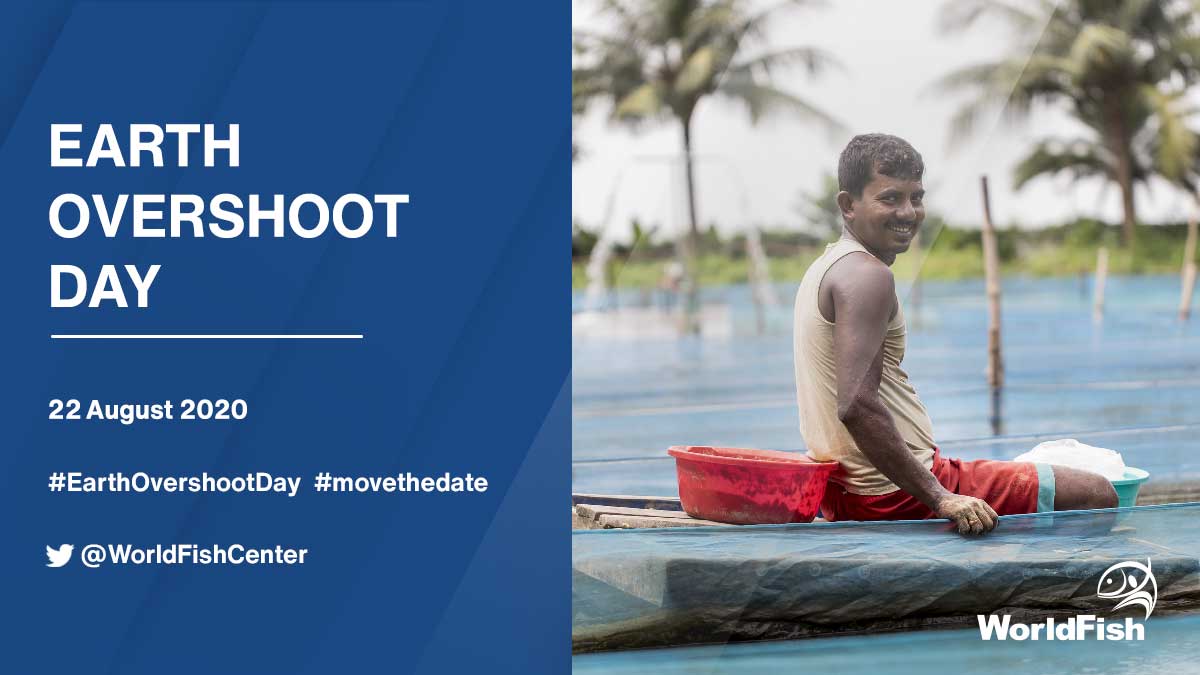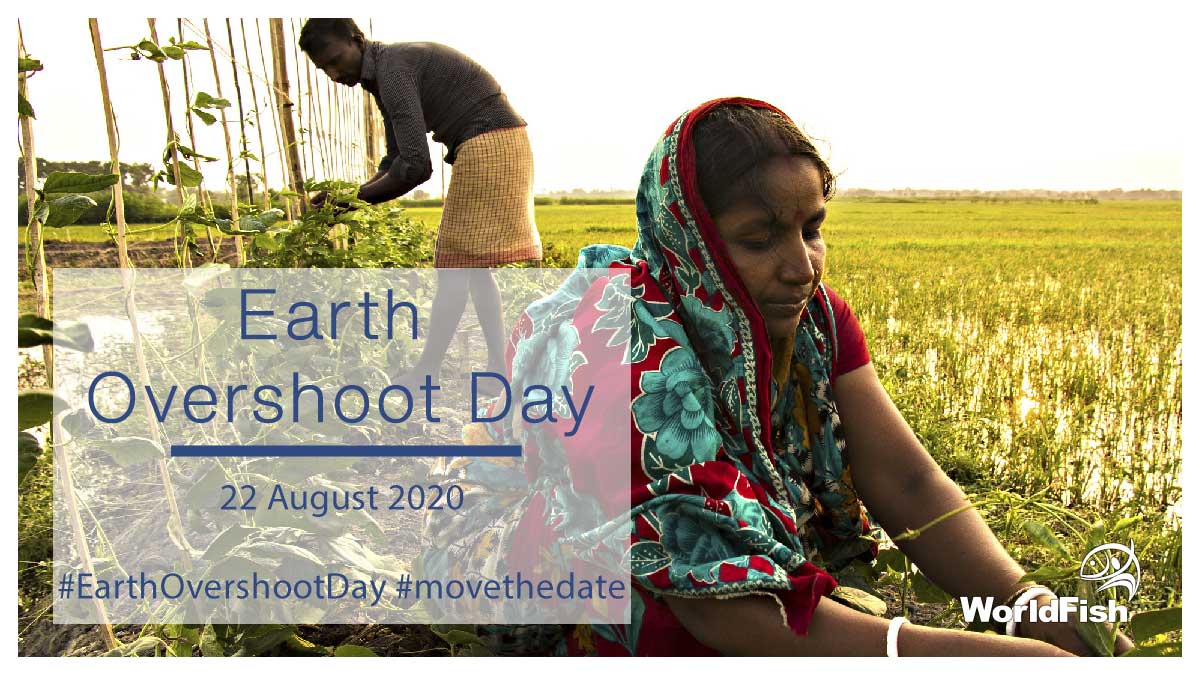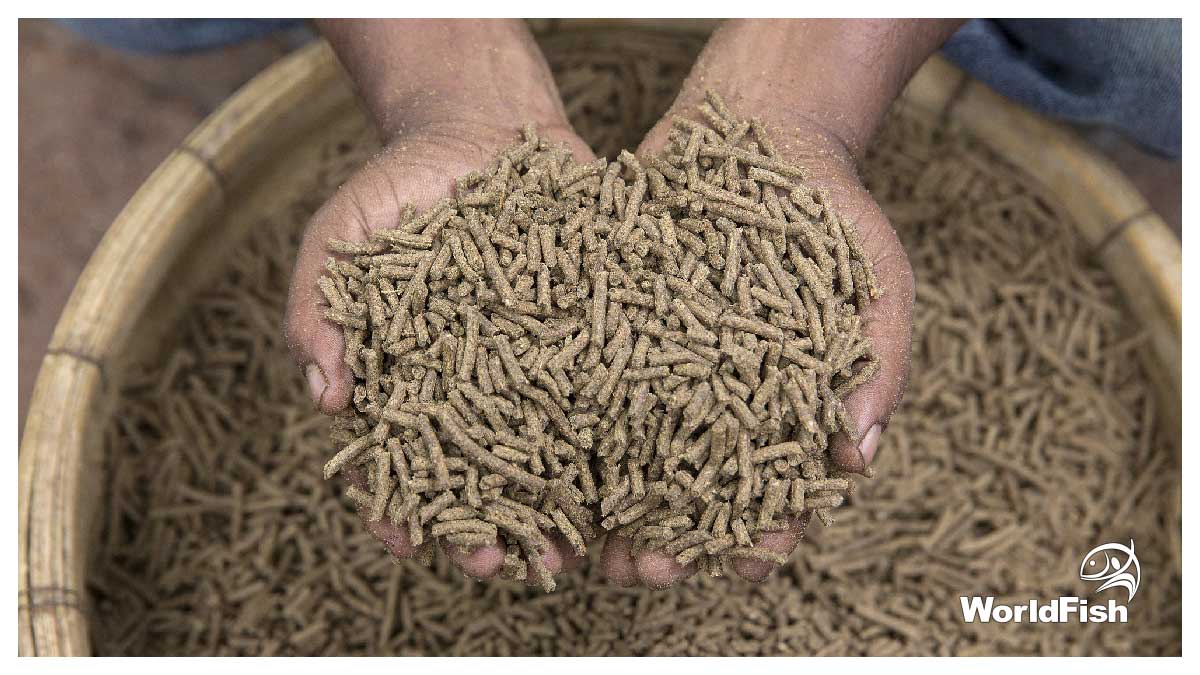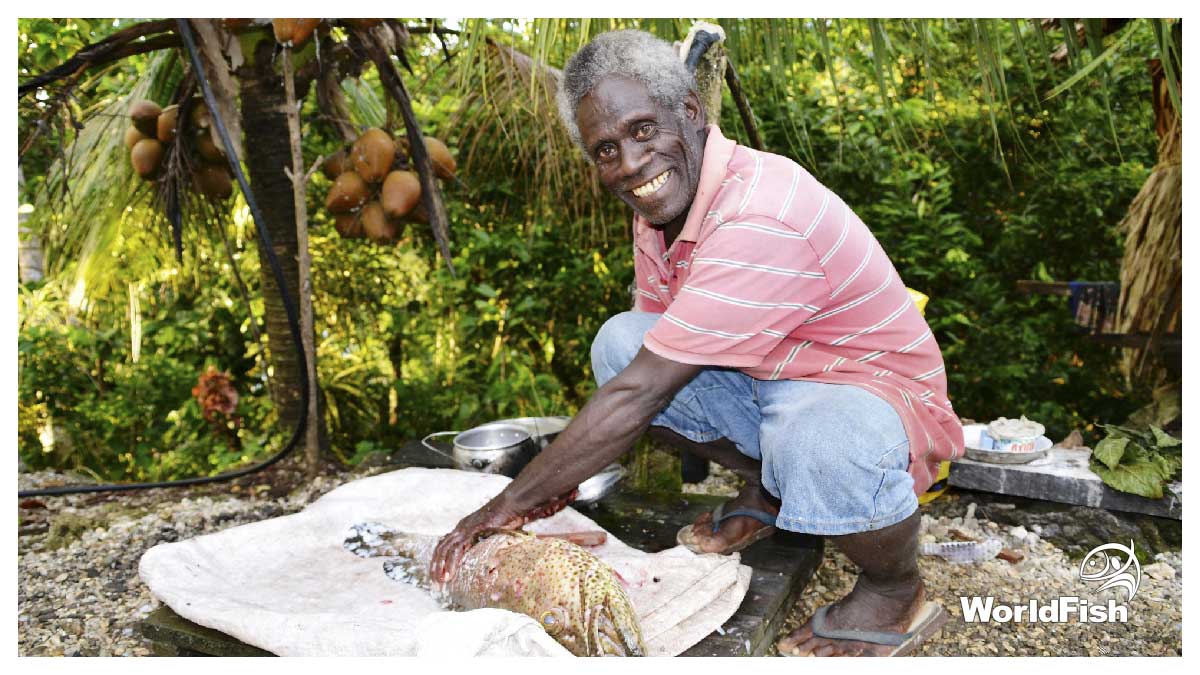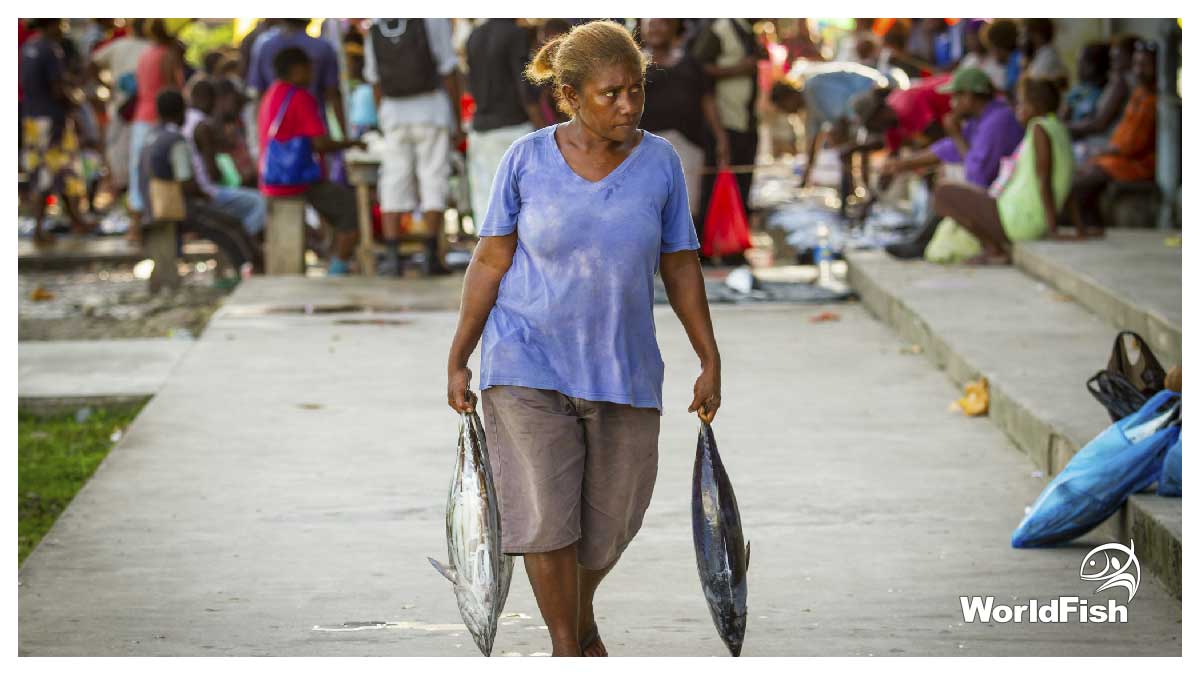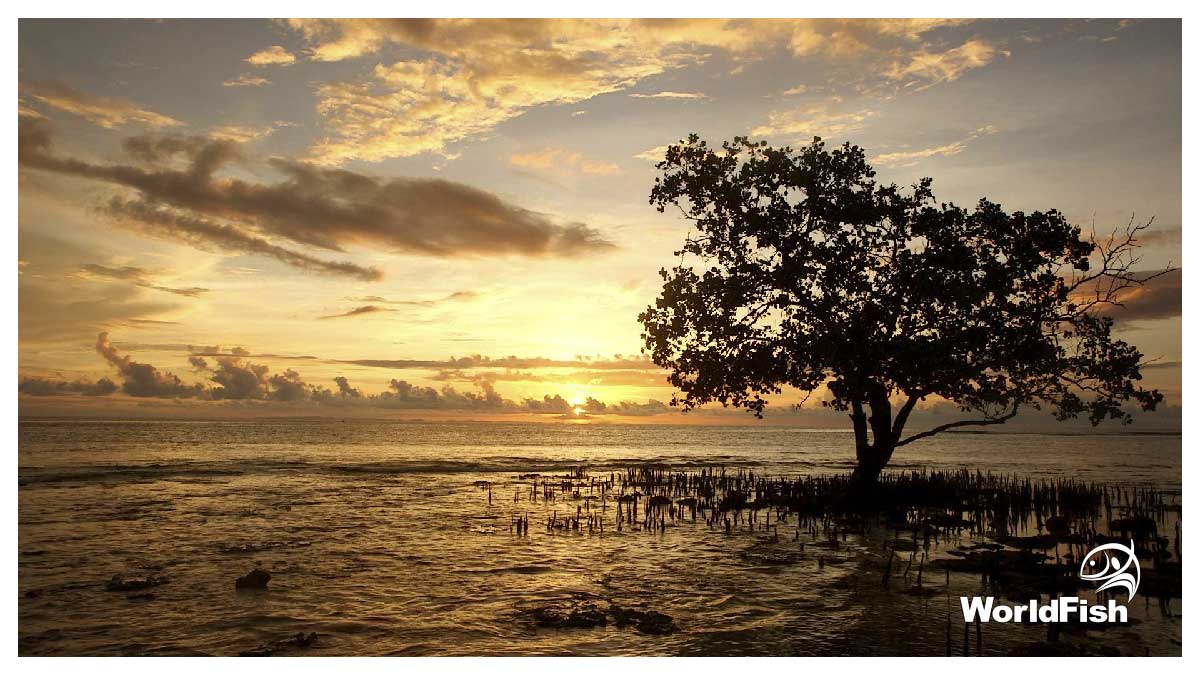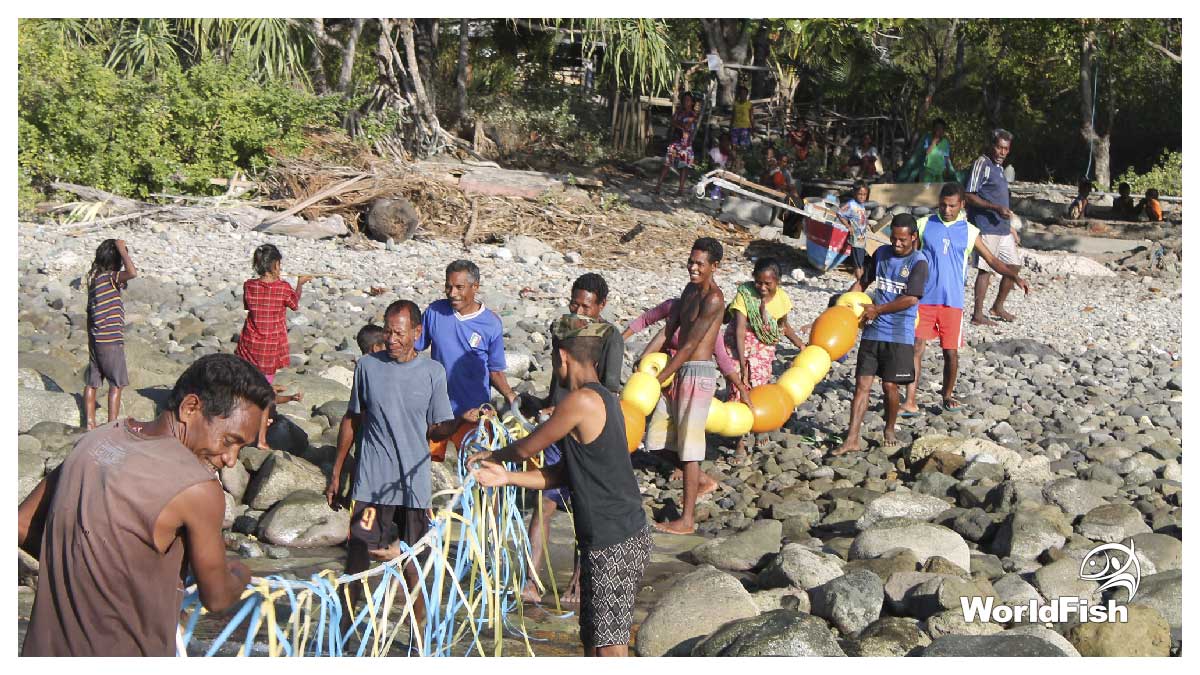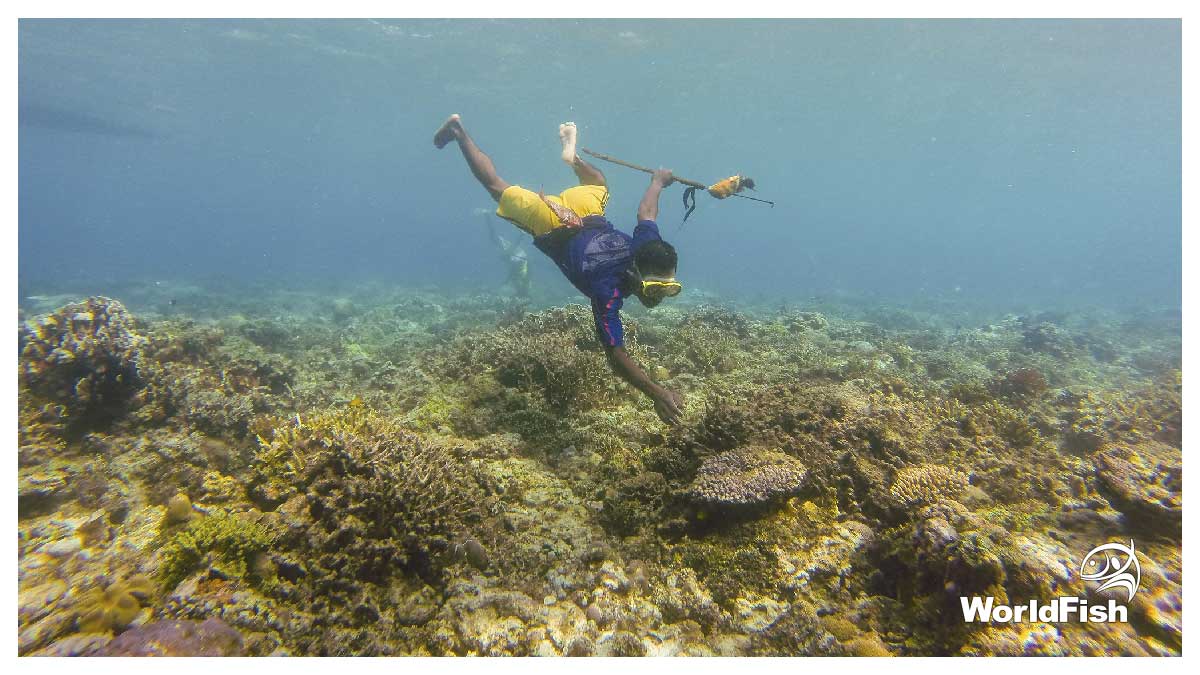Message from the Director General
Gareth Johnstone
Director General
WorldFish
In 1961, humanity used only 73 percent of the biological resources that Earth could renew that year. In 2020, humanity uses 160 percent of what Earth's biocapacity can renew this year. That's as much as if we lived on 1.6 planets. It’s urgent we use less now by being smart about the way we consume resources.
The response to the COVID-19 pandemic presents a unique opportunity to build forward better and make considerable ground to #MoveTheDate. As part of recovery efforts, we must reimagine our ecological footprint to forge sustainable pathways that support people and planet.
Our food is a great place to start. Agriculture contributes a significant share of the greenhouse gas emissions that cause climate change. High demand for land-based crops and livestock is exacerbating climate action and putting pressure on wildlife and natural ecosystem, which are experiencing the fastest rates of extinction because of habitat loss.
Aquatic foods, animals and plants harvested from water, must play a larger role in sustainably feeding the world. Aquatic foods also offer a variety of micronutrients not found in other plants and animals that are great for human health.
New research shows sustainable aquaculture produces much less carbon emissions than land-based livestock. WorldFish is bringing together influential researchers, development, government and private sector representatives to mobilize a global movement to push more sustainable and nutritious aquatic foods onto plates.
Transforming our global food system with sustainable and climate-resilient aquatic foods offers the opportunity to accelerate efforts on a number of Sustainable Development Goals, namely SDG 1: No Poverty, 2: Zero Hunger, 3: Health and Well-being, 5: Gender Equality, 8: Decent Work and Economic Growth, 10: Reduced Inequalities, 13: Climate Action, 14: Life Below Water and 17: Partnerships for Sustainable Development.
Tropical oceans are some of the first places where climate change impact is being felt, impacting the vulnerable communities that depend on them. If we don’t act now to cut global emissions there will be stark biological and socio-economic impacts. Research projects the maximum aquatic food catch potential in some tropical zones could decline by up to 40% by the 2050s, impacting economic, food and nutrition security.
Effective and practical adaptation solutions for both small-scale and industrial fisheries, built on the involvement of all appropriate stakeholders and supporting policies, are needed to sustain fisheries productivity in the tropics. In aquaculture, there is increasing evidence to show integrating fish, roots, tubers and bananas in food systems can build climate resilience and productivity. While the replacement of fisheries-derived fishmeal with yeast-derived proteins can improve sustainability.
Through research and innovation, WorldFish is working to reduce food waste and loss in aquatic food systems. Studies show around a third of total fish caught in fisheries and aquaculture is lost each year, often as a result of poor post-harvest storage, handling, and processing practices. Our work to trial and promote insulated containers in Egypt and solar-powered freezers in the Solomon Islands is resulting in less waste, more nutritious diets and improved livelihoods.
Join us on Facebook and Twitter and follow the hashtag #MoveTheDate. We will be covering Earth Overshoot Day updates from around our organization throughout the week.
Gareth Johnstone
Director General
WorldFish
 "Earth Overshoot Day reminds us to take stock of how we use natural resources and ask ourselves how we can do it better. We have vast scope to improve our food systems, first and foremost by reducing the amount of food that is “lost” in between production and consumption. Up to 35% of fish produced or caught could be lost due to spoilage or other quality declines. This results in water, land, energy or other natural resources that were used to produce food that no one consumed. We can do a lot just by improving the efficiency of our existing systems."
"Earth Overshoot Day reminds us to take stock of how we use natural resources and ask ourselves how we can do it better. We have vast scope to improve our food systems, first and foremost by reducing the amount of food that is “lost” in between production and consumption. Up to 35% of fish produced or caught could be lost due to spoilage or other quality declines. This results in water, land, energy or other natural resources that were used to produce food that no one consumed. We can do a lot just by improving the efficiency of our existing systems."
 "In the face of climate change, we must build climate-resilient sustainable-development pathways to food production. If we do not act now to contain our CO2 emissions, the catch potential of tropical fish stocks in some tropical coastal states is projected to decline by up to 40 percent by 2050. The key impacts for developing tropical nations will be their reduced capacity to achieve the UN Sustainable Development Goals related to food security, poverty alleviation and economic growth."
"In the face of climate change, we must build climate-resilient sustainable-development pathways to food production. If we do not act now to contain our CO2 emissions, the catch potential of tropical fish stocks in some tropical coastal states is projected to decline by up to 40 percent by 2050. The key impacts for developing tropical nations will be their reduced capacity to achieve the UN Sustainable Development Goals related to food security, poverty alleviation and economic growth."
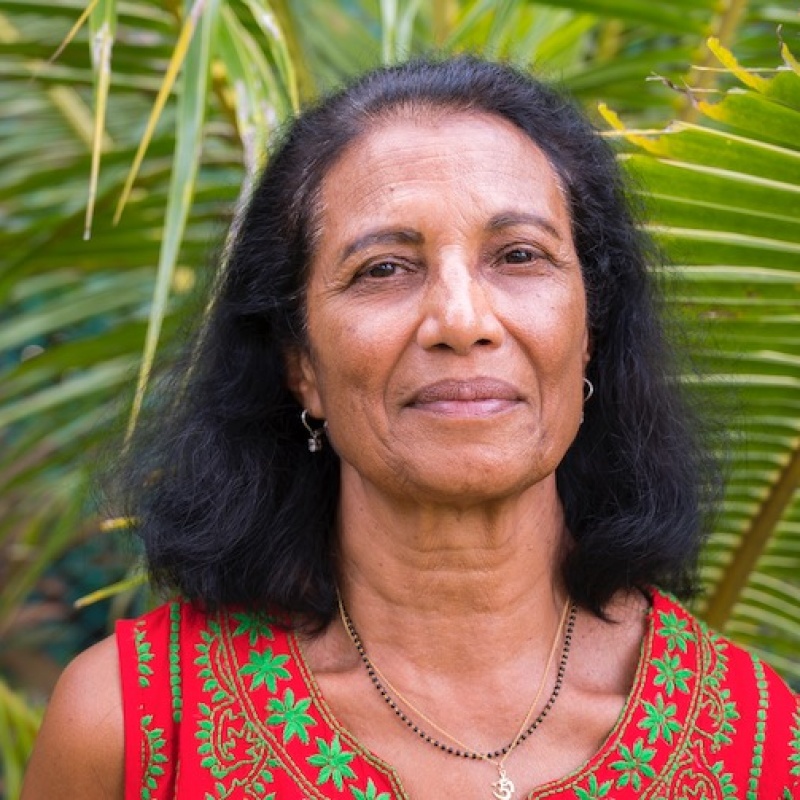 "COVID-19 responses are an opportunity to build forward better. Recovery efforts must take a holistic approach to global food systems transformation linking land and water. Aquatic foods have incredible potential to sustainably provide diverse, nutritious foods and livelihoods to billions of people around the world, especially the most vulnerable."
"COVID-19 responses are an opportunity to build forward better. Recovery efforts must take a holistic approach to global food systems transformation linking land and water. Aquatic foods have incredible potential to sustainably provide diverse, nutritious foods and livelihoods to billions of people around the world, especially the most vulnerable."
 "The resources produced by aquatic food systems are affected by climate change through gradual warming, ocean acidification, and changes in the frequency, intensity and location of extreme events. We are already seeing several fish populations migrating to optimal environments – often northward. The impacts of climate change are primarily felt by vulnerable communities with limited adaptive capacities."
"The resources produced by aquatic food systems are affected by climate change through gradual warming, ocean acidification, and changes in the frequency, intensity and location of extreme events. We are already seeing several fish populations migrating to optimal environments – often northward. The impacts of climate change are primarily felt by vulnerable communities with limited adaptive capacities."
Blogs
WorldFish climate change leader Essam Yassin Mohammed seeks a systems approach for resilient aquatic foods
Read More
Replacement of fisheries-derived fishmeal with yeast-derived proteins for sustainable aquaculture in Zambia
Read MoreA food system integration story: Fish with roots, tubers and bananas
Read More
World Resources Institute report lays the table for a sustainable food future
Read More
Publications
Climate change and resilience
- Social determinants of adaptive and transformative responses to climate change
- Climate change, tropical fisheries and prospects for sustainable development
- Quantifying greenhouse gas emissions from global aquaculture
- A gendered ecosystem services approach to identify novel and locally-relevant strategies for jointly improving food security, nutrition, and conservation in the Barotse Floodplain
COVID-19 recovery and response
- Key indicators for monitoring food system disruptions caused by the COVID-19 pandemic: Insights from Bangladesh towards effective response
- Changes and adaptations in village food systems in Solomon Islands: A rapid appraisal during the early stages of the COVID-19 pandemic
- Pandemic Prices: COVID-19 Price Shocks and Their Implications for Nutrition Security in India
Food systems transformation
- Integrating fish, roots, tubers and bananas in food systems: Opportunities and constraints
- World Reseources Report: Creating a sustainable food future, a menu of solutions to feed nearly 10 billion people by 2050
- Food, Agriculture, and Nutrition in India 2020: Leveraging Agriculture to Achieve Zero Hunger
Projects
Videos

Fish with Roots, Tubers and Bananas (RTB crops)
This short video draws attention to the importance of combining fish with roots, tubers, and bananas (RTB) in achieving a nutritious and sustainable diet in developing countries.

A climate resilient and inclusive aquatic foods system
Marine and freshwater resources provide millions of impoverished people across the world with livelihoods and provide a range of critical ecosystem services. One billion people worldwide rely on fish as their main or only source of animal protein.
